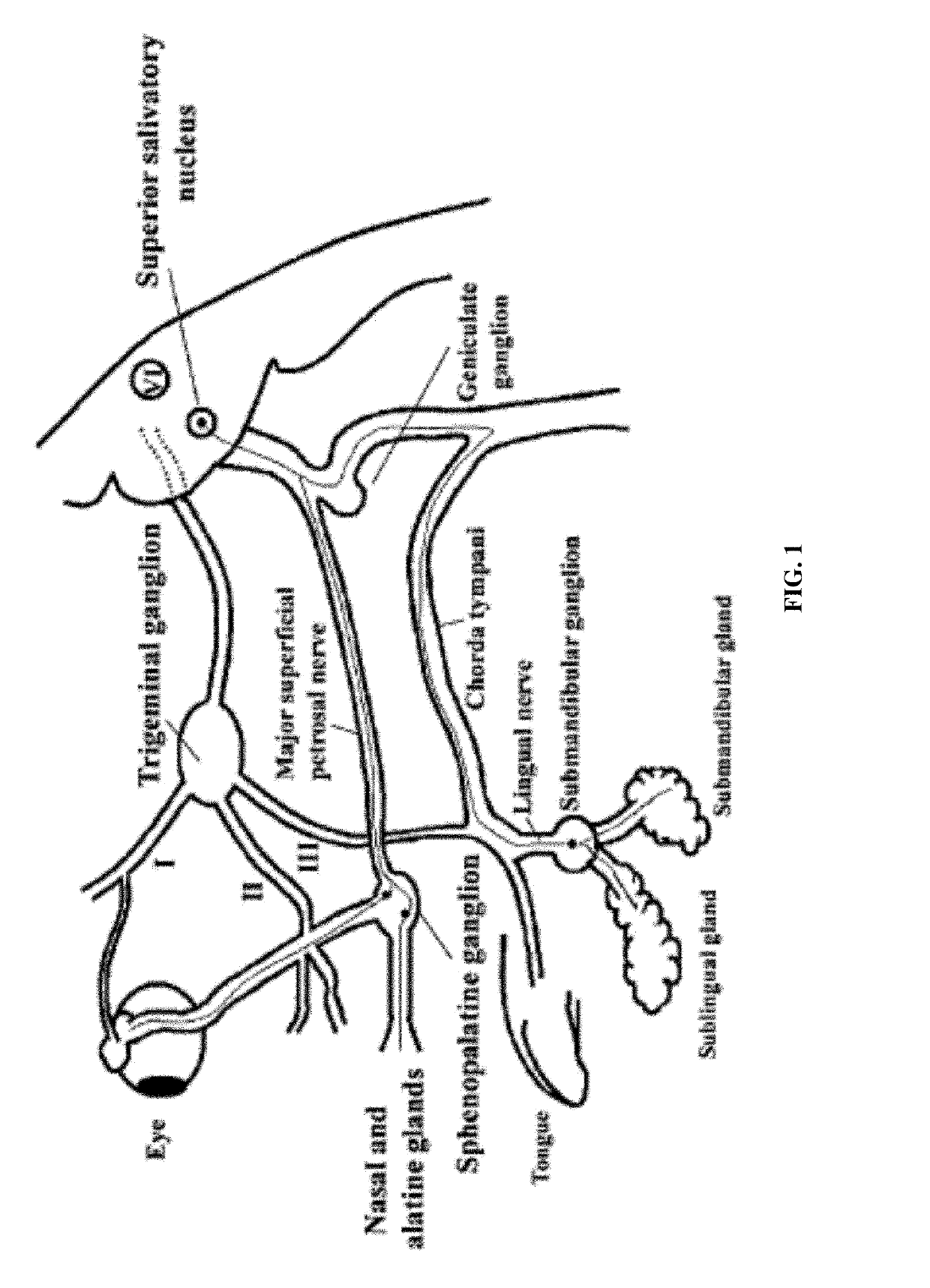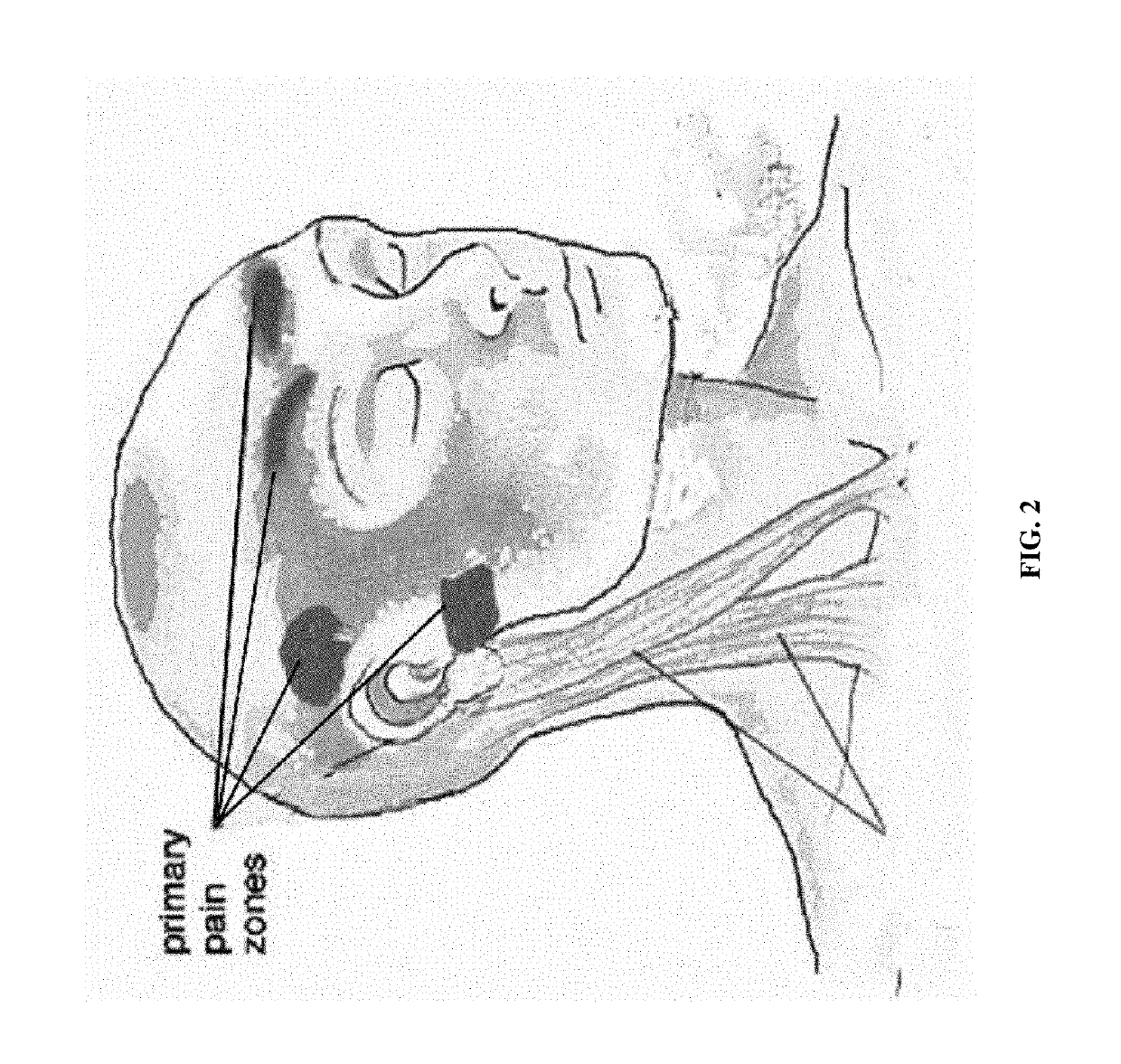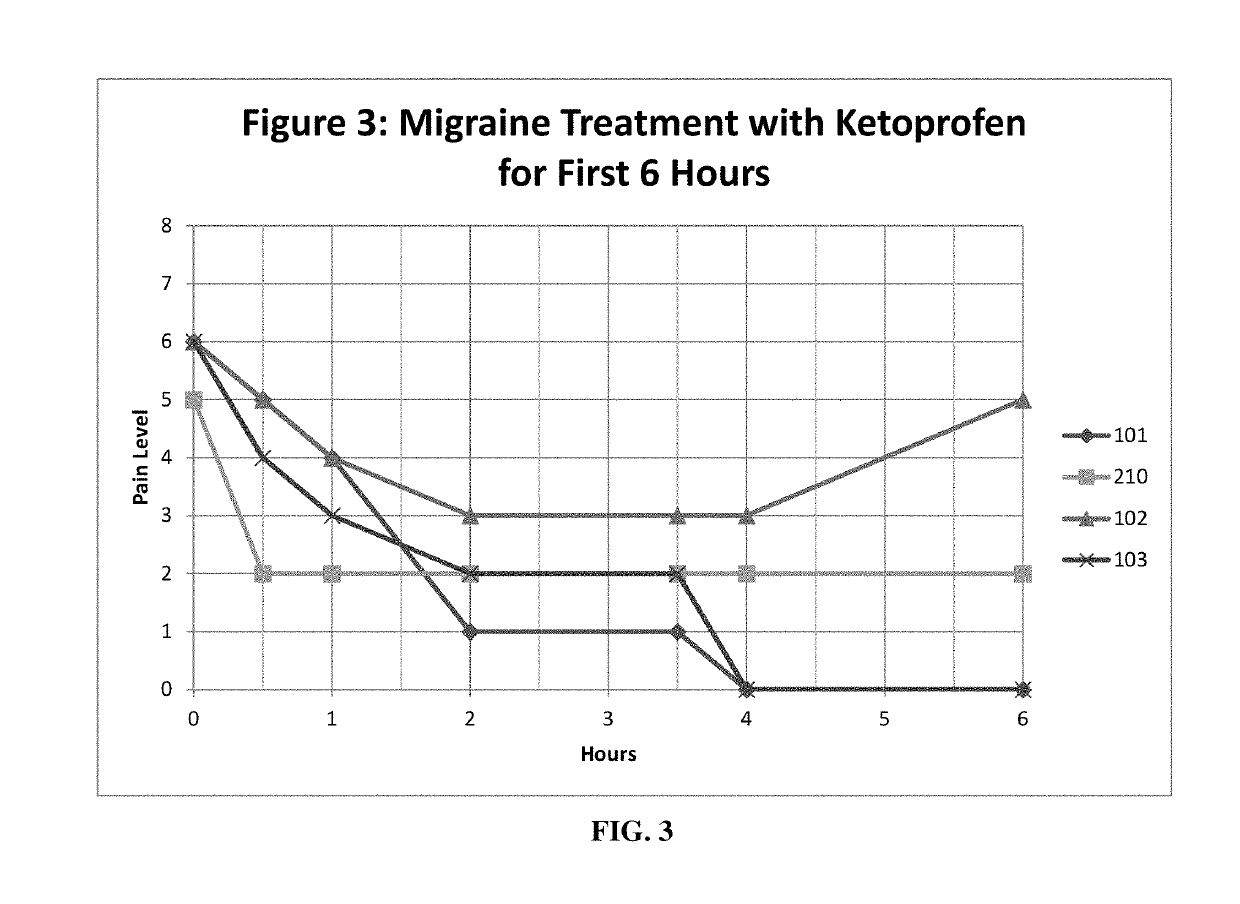Methods and compositions for treating and preventing trigeminal autonomic cephalgias, migraine, and vascular conditions
a technology of autonomic cephalgia and composition, applied in the field of methods and compositions for treating headache, can solve the problems of migraine, migraine, referred pain anywhere along the trigeminal network, and migraine, and achieve the effect of reducing or preventing symptoms
- Summary
- Abstract
- Description
- Claims
- Application Information
AI Technical Summary
Benefits of technology
Problems solved by technology
Method used
Image
Examples
example 2
on of an Ointment Base
[0094]To prepare 100 mL of an ointment base, decyl methyl sulfoxide (0.6 g) was crushed in a mortar and placed in glass bottle large enough to hold minimally 100 mL. Everclear 95% ethanol (19 mL) was added to the decyl methyl sulfoxide and shaken vigorously. Propylene glycol (58 mL) and ethoxy diglycol (20 mL) were added to this mixture and shaken together.
[0095]Menthol crystals (0.08 g) and butylated hydroxytoluene (0.05 g) were crushed in a mortar. A small amount (2 mL) of Everclear 95% ethanol was added to dissolve the crushed menthol crystals and butylated hydroxytoluene.
[0096]As a final step, the mixture of menthol and butylated hydroxytoluene was added to the decyl methyl sulfoxide mixture and shaken well. This final mixture was stored in a glass bottle, where this ointment can be used as base in the preparation of the therapeutic agents.
[0097]Furthermore, it is possible to add additional or different therapeutic agents or vary the percentage of the thera...
example 3
on of a Cream Base
[0098]To make 100 mL of a cream base, Carbomer NF, Isopropyl Myristate, Disodium EDTA, Sodium MethylParaben, Sodium Propyl n Parabens were mixed using a suitable mixer as described in U.S. Pat. No. 6,083,996 to Biiyiiktimkin, et al., entitled “Topical Compositions For NSAID Drug Delivery” that discusses specific topical formulations for enhanced delivery of NSAID across human skin. This cream base was used to formulate the therapeutic agents into final formulations, which is described in Example 5.
example 4
on of Cream with Therapeutic Agents
[0099]The cream base detailed in Example 1 (10 g) was added to propylene glycol (5 mL) and dextromethorphan (5g). This mixture was blended together. Then, 10% sodium hydroxide (2.5 mL) was added to the mixture. Ibuprofen (or ketoprofen) (30 g) was added to the mixture. Krisgel 100™ (4 g, a thickener) and distilled water (46 g) was added, mixed thoroughly, and was adjusted to have a pH of about 5-6.5 with 10% sodium hydroxide. This cream was then packaged in ointment dispensing tubes.
PUM
| Property | Measurement | Unit |
|---|---|---|
| w/w | aaaaa | aaaaa |
| frequency | aaaaa | aaaaa |
| vascular pressure | aaaaa | aaaaa |
Abstract
Description
Claims
Application Information
 Login to View More
Login to View More - R&D
- Intellectual Property
- Life Sciences
- Materials
- Tech Scout
- Unparalleled Data Quality
- Higher Quality Content
- 60% Fewer Hallucinations
Browse by: Latest US Patents, China's latest patents, Technical Efficacy Thesaurus, Application Domain, Technology Topic, Popular Technical Reports.
© 2025 PatSnap. All rights reserved.Legal|Privacy policy|Modern Slavery Act Transparency Statement|Sitemap|About US| Contact US: help@patsnap.com



